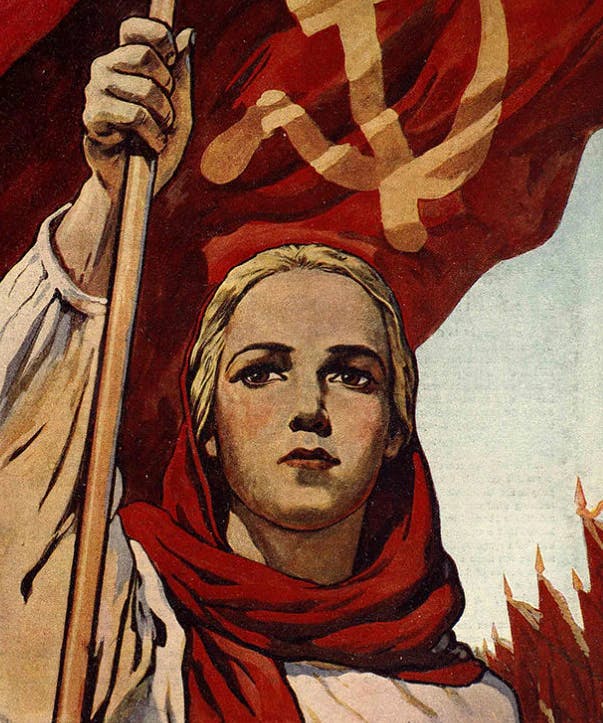Was Feminism A Psyop To Get Women To Pay More Taxes To The Government?
It has been said that the first building block of a dynasty is the self-sufficient home. Women’s traditional roles were a crucial part of creating independence and freedom from the corrupt state for the family.

Women held the crucial positions of community organizers, teachers, mothers, homemakers, Good Samaritans of the underprivileged through church-related efforts, holistic nutritionists, midwives, and healers long before feminism was even a glimmer in a suffragette’s eye.
Women held these important positions, not because they had been forced to be there, but because their natural skillsets and personalities drew them to these areas of expertise. The roles held by women in the pre-feminism world were indeed valued and seen as essential and honorable.
In the last century however, the powerful impact women have had on this essential aspect of Western culture has been neutered in the process of making us mere producers and consumers.
To say that women are powerless because they don’t have the power that men have is to not understand feminine power at all.
This is not to say there were no women-specific issues that caused life to be challenging. Certainly, the past was a brutal place for all who inhabited it. But it is to say that women have always been empowered through work within and outside the home. But what if the idea that women needed an ideological political movement or a pantsuit in order to become who they’re meant to be is a mere psyop, intended in reality to make them taxable, accounted-for, obedient workers?
The Marxist Roots of Feminism
Feminist and socialist ideologies share many similarities. Socialism, with its original focus on worker rights, concentrated on the conflict between oppressor and oppressed as it pertained to the upper and lower economic classes in society. Feminism uses the same dichotomy, but instead of oppressor and oppressed being seen from the economic standpoint, it’s seen from the perspective of gender.
Both Marxism and feminism are ideological perspectives pertaining to power in society, who has it and its rightful distribution. The haves and have-nots became the masculine and the feminine. Both ideologies seek the same end via leveling natural differences of competence, skill, ambition, ability, and economic or genetic inheritance in the pursuit of equality. They claim that meritocracy is flawed, that the natural order was rigged, and that by lifting the weak up and keeping the strong down everyone would be freer. Of course, the opposite is true.
Both Marxism and feminism are ideological perspectives pertaining to power in society, who has it and its rightful distribution.
Women were hoodwinked by feminism to believe they have no power if not the power of a man. Nothing could be further from the truth. Men and women lay claim to complementary but essentially different kinds of power. To say that women are powerless because they don’t have the power that men have is to not understand feminine power at all.
Women have their own gender-specific, life-giving power which is creative and nurturing at its core, without which civilization could not function. Just as men are with their protective, laboring, and innovative prowess. Both are necessary, and despite what feminism claims, they’re not interchangeable.
Why Marxists Target Women Specifically
It's certainly not a conspiracy to believe in the connection between women's empowerment narratives and Marxist ideology. Lenin was open about his mission to destroy the nuclear family by pushing women into the workforce. You see, to a Communist, a woman who was spending her time taking care of her husband and children was a waste of a good worker who could be put to use for Mother Russia.
In fact, the “equal pay for equal work” slogan of today's feminists was officially legislated for the first time by Lenin’s Bolshevik government. By pushing women out of the home, Marxists were able to achieve two goals at once. They destroyed the biologically strong glue of the nuclear family while doubling their workforce.
The Connection between Feminism and Taxes
Though the anti-suffragette movement is not popular to discuss nowadays, traces of their arguments can still be found. By pushing women out of the home to make a living alongside their husbands, the labor force effectively doubled, keeping wages down for employers and drastically raising the number of subjects that the state can tax. This dramatically increased the wealth of those most wealthy and increased the reliance on and power of the state while making the single-income household, the last vestige of individual liberty, a relic of the past.